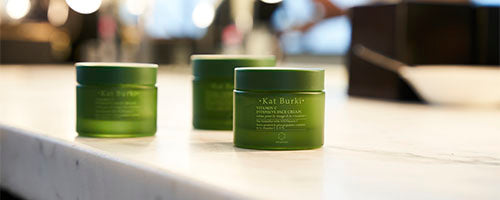Want to know the secret to rejuvenate skin, keeping your complexion radiant looking even in winter? Chilly temperatures and lack of humidity can deplete vital moisture and contribute to everything from chapped lips and dry flaky skin to fine lines. Since skin dryness during winter increases, it’s crucial to adjust your personal skincare routine—but what does that mean exactly? Discover why skin-protecting nutrient-dense ingredients are key and which ones to look for—and how to optimize absorption and speed up cellular renewal through skin exfoliation.

Skin shedding is part of its turnover process—it also affects how you retain moisture. While invisible to the naked eye, your skin releases roughly 30,000 skin cells every minute, enhancing skin radiance. It’s a function of your skin’s immune system known as desquamation, and takes roughly twenty-eight days for the cycle to complete. After new cells are created in the lower layers they migrate to the surface and replace old ones, resulting in fresh glowing skin. During different times of the year, your skin’s surface changes—that influences the efficiency of this process, affecting the look and feel of your complexion.
Does Dry Winter Skin Impact Cell Turnover?
There are reasons why during colder months your complexion tends to mirror the starkness of the season by taking on a duller, paler appearance. Winter and itchy skin is common. Circulation and energy production moves at a different pace, slowing down cellular turnover. As a result excess skin cells can collect and clog pores. Plus, reduced exposure to natural light results in lower Vitamin D levels that may interfere with your sleep habits—and rest is essential to skin cell renewal. All these factors and more can negatively influence your skin’s natural immune functions, which include cell turnover, repair and wound healing.
Facial Rejuvenation Through Exfoliation
Regularly exfoliating has far-reaching benefits. It helps nurture a clear balanced complexion, maximizing absorption of skincare products and their ingredients. As you remove dead cells and bacteria, fresh skin emerges, improving skin texture and feel, decreasing your chance of acne and breakouts. Even an extra gentle exfoliant can help reduce inflammation, and promote cellular regeneration—which includes collagen production.
How Can You Exfoliate Properly?
If possible, exfoliate daily during chilly months to make up for cell turnover slowdown. When you safely nudge the shedding process along with your own at home skin peel, it helps you achieve a healthy luminous complexion year round. Choose calming nutritious formulations—skin may be more sensitive and prone to breakouts in winter. Keep in mind, some exfoliators contain harsh ingredients, aren’t intended for daily use, and may strip vital moisture and cause irritation. Here are some things to consider when updating your daily skincare routine…

Protecting Your Microbiome
Your skin’s microbiome consists of infinitesimal good and bad bacteria, fungi, and viruses. Keeping this invisible universe healthy is essential for skin wellness. When balanced, it helps ward off infection and maintain healthy skin barrier function—this includes prevention and protection from various diseases.
The importance of ingredients can’t be stressed enough. Depending on how often and the products you exfoliate with, you risk striping skin and interfering with your microbiome and skin barrier function—how your skin protects itself. Only use gentle microbiome-friendly exfoliants, ideally dermatologist tested. And remember to stick to a routine as consistency is important for skin.
Note: When using stronger formulations, do a patch test beforehand to see how well ingredients are tolerated.
What Are The Best Exfoliants For Sensitive Skin?
Seek out vitamin-rich gentle ingredients that nurture without harming your biome are ideal for daily use. B vitamins are especially soothing and restorative. Pumpkin and papaya seed enzymes are especially beneficial skin-calming exfoliants as they help regulate PH balance, while naturally accelerating the shedding process.
When Should You Exfoliate?
A peel can be done in the morning or evening. Nighttime gives you the added protection of not exposing skin to the elements for eight or more hours. For stronger ingredient peels, this provides an extra buffer, helping skin heal and restore balance during sleep.
What Should You Avoid When Exfoliating?
Stay clear of harsh chemicals. Avoid artificial fragrances, preservatives, dyes, and other hidden ingredients such as formaldehyde, sodium lauryl sulfate, and parabens that may be lurking in your exfoliating products.
What Should You Do After Exfoliating?
Follow up a peel with a nutrient dense serum and moisturizer, further helping along the cellular renewal process.
What’s the best face moisturizer for dry skin after exfoliating?
In winter you may want to opt for a richer formulation, containing nutrients and antioxidants that heal and also prevent inflammation.
Bestselling Exfoliators From Kat Burki
Our top-selling exfoliators for a radiant, healthy glow.
PH+ Enzyme Essence
An exfoliant safe enough to be used daily in the morning or evening—this lightweight essence formulated with pumpkin seed and papaya enzymes helps cultivate a healthy microbiome. KB5 complex soothes your complexion, contributes to collagen production and plumpness—and licorice root and turmeric offer powerful anti-inflammatory, antioxidant effects.
Restorative Dual Acid Peel
Glycolic acid brightens while reducing redness and enlarged pores—and KB five complex and Rishi mushroom extract encourages renewal. The dewy combination of avocado and grapeseed oils provide dual antioxidant protection from UV damage while hydrating and plumping skin for a youthful glow.
C20 Velocity Serum
Brighten and correct a lackluster complexion with 20% stabilized vitamin C. A synergistic combination of MSM paired with road Rosehip seed oil calms skin and enhances absorption. Lactic acid reduces fine lines and wrinkles as it naturally removes surface skin cells. Snow mushroom and niacinamide work to restore tired skin and hydrate—DMAE improves firmness.
Super Peptide Firming Cream
A nutritional powerhouse in a daily moisturizer—formulated with Tri-Peptide, antioxidant-rich plant stem cells and amino acids to lock in moisture and strengthen your skin barrier. Ingredients work in synergy to firm, plump and smooth fine lines—MSM reduces skin stress as Niacinamide and CoQ10 help repair damage and promote rejuvenation.
In addition to nutrient-rich exfoliators and skincare, other winter wellness tips include: be sure to drink enough water to maintain hydration levels. Swap out excess caffeinated brews that may contribute to dryness for anti-inflammatory decaf green tea, or rosehip and hibiscus infusions containing vitamin A and skin-loving antioxidants. You might also consider adding a rosewater face mist to your personal skincare routine, and/or a serum like rosehip seed oil with regenerative properties—keep them on hand for a natural pick-me-up. Like the seasons themselves, how you nurture your face ought to change, reflecting your environment, as well as your evolving needs.





